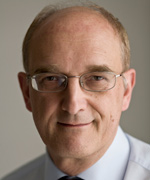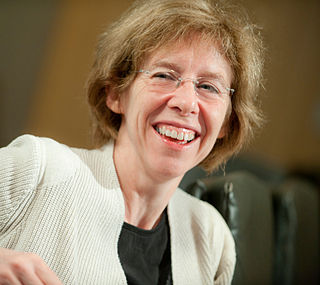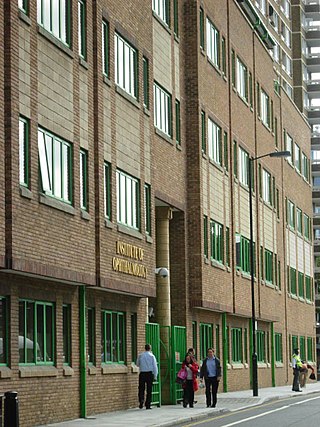Related Research Articles

Cancer Research UK (CRUK) is the world's largest independent cancer research organisation. It is registered as a charity in the United Kingdom and Isle of Man, and was formed on 4 February 2002 by the merger of The Cancer Research Campaign and the Imperial Cancer Research Fund. Cancer Research UK conducts research using both its own staff and grant-funded researchers. It also provides information about cancer and runs campaigns aimed at raising awareness and influencing public policy.

The Medical Research Council (MRC) is responsible for co-coordinating and funding medical research in the United Kingdom. It is part of United Kingdom Research and Innovation (UKRI), which came into operation 1 April 2018, and brings together the UK's seven research councils, Innovate UK and Research England. UK Research and Innovation is answerable to, although politically independent from, the Department for Business, Energy and Industrial Strategy.

The Wellcome Trust is a charitable foundation focused on health research based in London, United Kingdom. It was established in 1936 with legacies from the pharmaceutical magnate Henry Wellcome to fund research to improve human and animal health. The aim of the Trust is to "support science to solve the urgent health challenges facing everyone." It had a financial endowment of £29.1 billion in 2020, making it the fourth wealthiest charitable foundation in the world. In 2012, the Wellcome Trust was described by the Financial Times as the United Kingdom's largest provider of non-governmental funding for scientific research, and one of the largest providers in the world. According to their annual report, the Wellcome Trust spent GBP £1.1 billion on charitable activities across their 2019/2020 financial year. According to the OECD, the Wellcome Trust's financing for 2019 development increased by 22% to US$327 million.

Sir Martin John EvansFLSW is an English biologist who, with Matthew Kaufman, was the first to culture mice embryonic stem cells and cultivate them in a laboratory in 1981. He is also known, along with Mario Capecchi and Oliver Smithies, for his work in the development of the knockout mouse and the related technology of gene targeting, a method of using embryonic stem cells to create specific gene modifications in mice. In 2007, the three shared the Nobel Prize in Physiology or Medicine in recognition of their discovery and contribution to the efforts to develop new treatments for illnesses in humans.

The Wellcome Sanger Institute, previously known as The Sanger Centre and Wellcome Trust Sanger Institute, is a non-profit British genomics and genetics research institute, primarily funded by the Wellcome Trust.
Sir Peter James Donnelly is an Australian-British mathematician and Professor of Statistical Science at the University of Oxford, and the CEO of Genomics PLC. He is a specialist in applied probability and has made contributions to coalescent theory. His research group at Oxford has an international reputation for the development of statistical methodology to analyze genetic data.

The Cambridge Biomedical Campus is the largest centre of medical research and health science in Europe. The site is located at the southern end of Hills Road in Cambridge, England.

Sir Leszek Krzysztof Borysiewicz is a British professor, immunologist and scientific administrator. He served as the 345th Vice-Chancellor of the University of Cambridge, his term of office started on 1 October 2010 and ended on 1 October 2017. Borysiewicz also served as chief executive of the Medical Research Council of the UK from 2007-2010 and was the chairman of Cancer Research UK from 2016 to 2023.

Fiona Watt, is a British scientist who is internationally known for her contributions to the field of stem cell biology. In the 1980s, when the field was in its infancy, she highlighted key characteristics of stem cells and their environment that laid the foundation for much present day research.
Austin Gerard Smith is a professor at the University of Exeter and director of its Living Systems Institute. He is notable for his pioneering work on the biology of embryonic stem cells.
John Andrew Todd is a British geneticist who is Professor of Precision Medicine at the University of Oxford, director of the Wellcome Center for Human Genetics and the JDRF/Wellcome Trust Diabetes and Inflammation Laboratory, in addition to Jeffrey Cheah Fellow in Medicine at Brasenose College. He works in collaboration with David Clayton and Linda Wicker to examine the molecular basis of type 1 diabetes.

The UCL Institute of Ophthalmology is an institute within the Faculty of Brain Sciences of University College London (UCL) and is based in London, United Kingdom. The institute conducts research and post-graduate teaching in the area of ophthalmology.
King's Health Partners is an academic health science centre located in London, United Kingdom. It comprises King's College London, Guy's and St Thomas' NHS Foundation Trust, King's College Hospital NHS Foundation Trust and South London and Maudsley NHS Foundation Trust.
Andrea Hilary Brand is the Herchel Smith Professor of Molecular Biology and a Fellow of Jesus College, Cambridge. She heads a lab investigating nervous system development at the Gurdon Institute and the Department of Physiology, Development and Neuroscience. She developed the GAL4/UAS system with Norbert Perrimon which has been described as “a fly geneticist's Swiss army knife”.
The Wellcome Trust Centre for Cell-Matrix Research at the University of Manchester pursues research into extracellular matrix (ECM) biology and its contribution to human diseases. The Centre was established in 1995 by Mike Grant and is funded by the Wellcome Trust.

Allan Bradley FRS is a British geneticist at the Wellcome Trust Sanger Institute.

Sarah Amalia Teichmann is a German scientist, the former head of cellular genetics at the Wellcome Sanger Institute and a visiting research group leader at the European Bioinformatics Institute (EMBL-EBI). She serves as director of research in the Cavendish Laboratory, Professor at the University of Cambridge and Cambridge Stem Cell Institute, and is a senior research fellow at Churchill College, Cambridge.
The History of Modern Biomedicine Research Group (HoMBRG) is an academic organisation specialising in recording and publishing the oral history of twentieth and twenty-first century biomedicine. It was established in 1990 as the Wellcome Trust's History of Twentieth Century Medicine Group, and reconstituted in October 2010 as part of the School of History at Queen Mary University of London.

The MRC Weatherall Institute of Molecular Medicine at the University of Oxford is a research institute located at the John Radcliffe Hospital in Oxford. Founded in 1989 by Sir David Weatherall, the institute focuses on furthering our understanding of clinical medicine at a molecular level. It was one of the first institutes of its kind in the world to be dedicated to research in this area.
Marysia Placzek is a Wellcome Trust Investigator and Professor of Developmental Neurobiology in the Department of Biomedical Science, The University of Sheffield.
References
- ↑ "Incredible discoveries hint at wonder of scientific mysteries yet to be unravelled". The Times. London. 10 May 2008. Archived from the original on 6 September 2008.
- ↑ "Skin – the key to medical cures?". BBC News. 24 July 2010.
- ↑ "CSCR: Fiona Watt Research". www.cscr.cam.ac.uk. Archived from the original on 8 December 2009.
- ↑ "New research gives insight into how stems cells develop into other types of cells".
- ↑ "Scientists uncover secret of eternal youth". The Daily Telegraph. London. 23 May 2008. Archived from the original on 19 August 2009.
- ↑ "Welcome Trust Centre for Stem Cell Research, University College Cambridge". www.hfea.gov.uk. Archived from the original on 7 June 2009.
- ↑ "Wellcome Trust Centre for Stem Cell Research" . Retrieved 13 November 2009.

